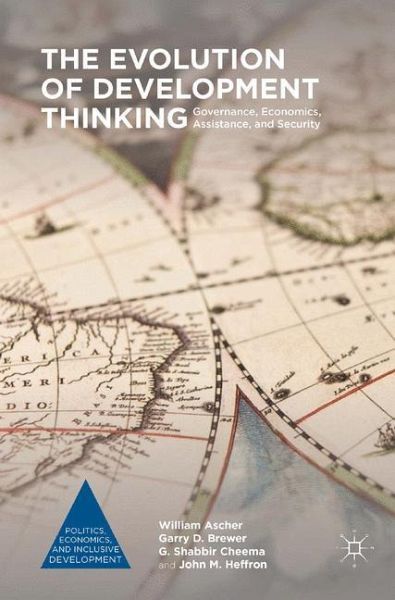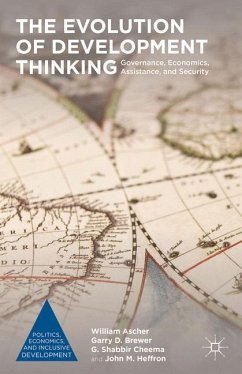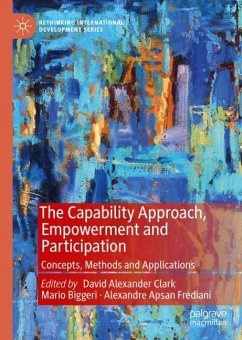
The Evolution of Development Thinking
Governance, Economics, Assistance, and Security
Versandkostenfrei!
Versandfertig in 6-10 Tagen
31,99 €
inkl. MwSt.
Weitere Ausgaben:

PAYBACK Punkte
16 °P sammeln!
This landmark book offers a comprehensive analysis of how development approaches have evolved since World War II, examining and also evaluating the succession of theories, doctrines, and practices that have been formulated and applied in the Third World and beyond. Covering all developing regions, the book offers an integrated approach for considering the entwined aspects of development: governance, economics, foreign assistance, civil society, and the military. With reference to carefully chosen case studies, the authors offer distinctive explanations for why development approaches fall short...
This landmark book offers a comprehensive analysis of how development approaches have evolved since World War II, examining and also evaluating the succession of theories, doctrines, and practices that have been formulated and applied in the Third World and beyond. Covering all developing regions, the book offers an integrated approach for considering the entwined aspects of development: governance, economics, foreign assistance, civil society, and the military. With reference to carefully chosen case studies, the authors offer distinctive explanations for why development approaches fall short and systematically relate the evolution of development thinking to current challenges, identifying the strengths and weaknesses of key institutions and the clashes of institutional interests that have distorted otherwise sound doctrines and negatively affected development practice. In identifying the dynamics that account for shortcomings in past development attempts, and recommending abetterintegration of doctrines across the entire range of inter-connected development fronts, the book points to how development practice may be improved to better advance human dignity.














